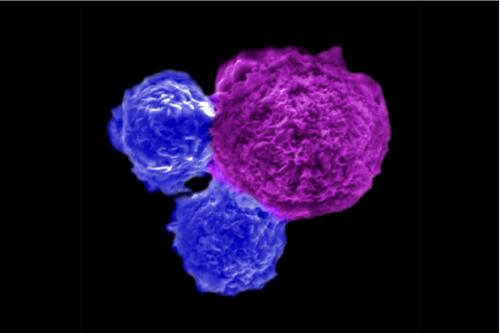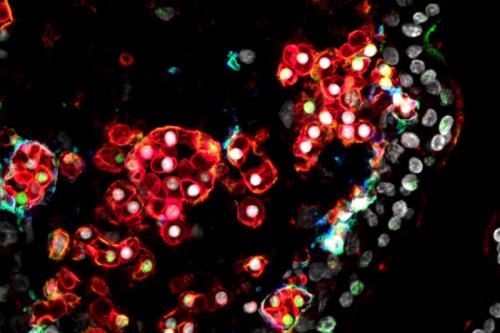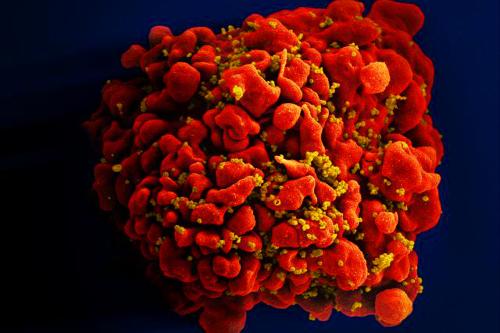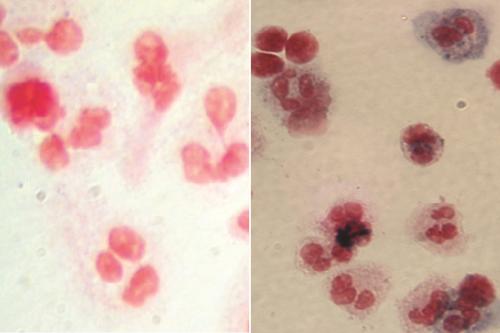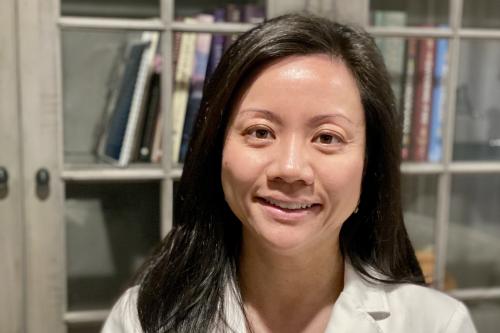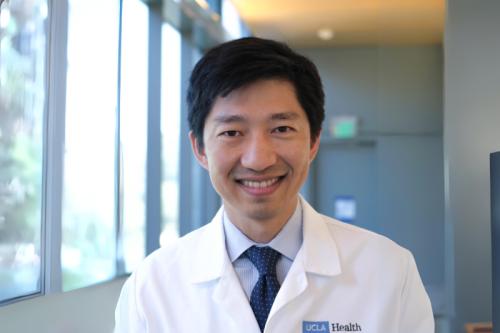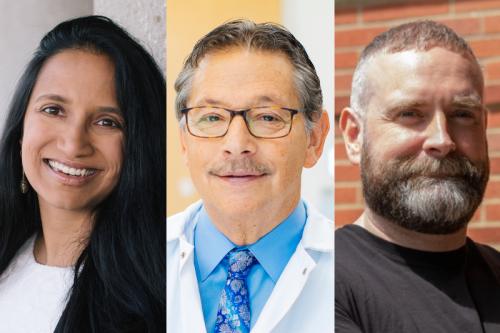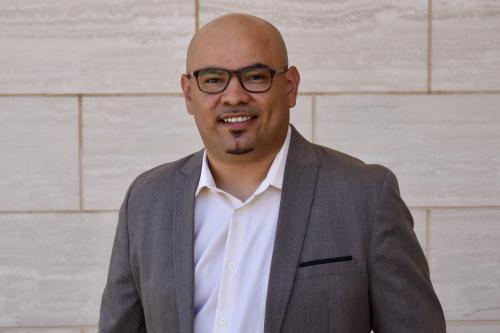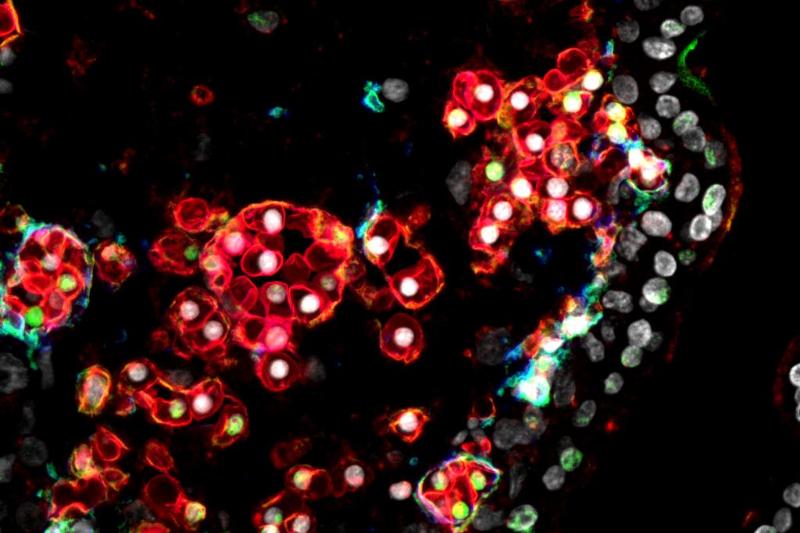
Blood & Immune Diseases
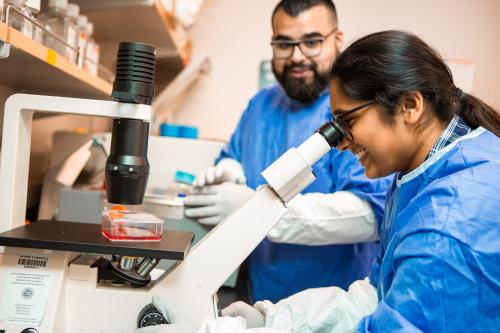
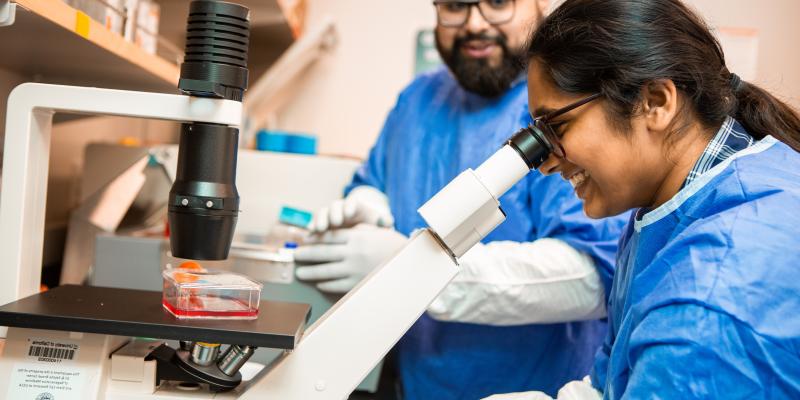
Overview
Blood and immune diseases encompass a broad spectrum of conditions that affect the body’s ability to produce and regulate blood and immune cells, as well as its ability to defend against pathogens and foreign substances.
Center researchers are advancing the understanding and treatment of these often devastating conditions by applying insights gained from their foundational studies of the biology of blood stem cells A type of tissue-specific stem cells found in the blood and bone marrow that can form various types of mature blood and immune cells. These cells play a crucial role in maintaining the body's blood supply and immune system by continuously producing new blood cells throughout a person's life. blood stem cells A type of tissue-specific stem cells found in the blood and bone marrow that can form various types of mature blood and immune cells. These cells play a crucial role in maintaining the body's blood supply and immune system by continuously producing new blood cells throughout a person's life.. Their efforts are bringing us closer to immunotherapies for HIV as well as methods to produce blood stem cells in a lab dish, which could lead to more effective and accessible treatments for leukemia and a range of inherited blood cell disorders.
A healthy immune system depends on strict molecular and genetic regulation that can activate an army of cells to fight disease and infection and then rein in this response to prevent damage to healthy tissue. Our members are studying this complex process to inform approaches to enhance immune function and methods to treat autoimmune diseases such as multiple sclerosis.
From fundamental studies elucidating the molecular mechanisms underlying blood stem cell development and differentiation The process by which stem cells transform into specific, specialized cell types with distinct functions and features. differentiation The process by which stem cells transform into specific, specialized cell types with distinct functions and features. to clinical trials of blood stem cell gene therapies for sickle cell disease and immune system deficiencies, center researchers are at the forefront of harnessing blood stem cells for therapeutic purposes. To learn more about how center members are applying these insights, visit the Cell & Gene Therapy research area.
Our Goals
- Develop and clinically advance more effective and accessible gene therapies and gene editing A type of gene therapy that works by delivering genetic material that can directly edit pieces of DNA within a cell. This changes the instructions the DNA encodes for, which ultimately results in an increase or decrease in the production of a certain protein and the restoration of proper cell function. gene editing A type of gene therapy that works by delivering genetic material that can directly edit pieces of DNA within a cell. This changes the instructions the DNA encodes for, which ultimately results in an increase or decrease in the production of a certain protein and the restoration of proper cell function. approaches to treat sickle cell disease
- Devise methods to produce functional blood stem cells A type of tissue-specific stem cells found in the blood and bone marrow that can form various types of mature blood and immune cells. These cells play a crucial role in maintaining the body's blood supply and immune system by continuously producing new blood cells throughout a person's life. blood stem cells A type of tissue-specific stem cells found in the blood and bone marrow that can form various types of mature blood and immune cells. These cells play a crucial role in maintaining the body's blood supply and immune system by continuously producing new blood cells throughout a person's life. in the lab, which could lead to more effective treatments for leukemia and other blood cell disorders
- Advance clinical trials of gene therapy A technique that uses a gene or gene(s) to prevent, treat or cure a disease or disorder. Most gene therapies work by adding a healthy version of a gene to replace one that is defective or missing into the genome of particular cells. Some of these therapies use viral vectors to deliver genes into target cells. gene therapy A technique that uses a gene or gene(s) to prevent, treat or cure a disease or disorder. Most gene therapies work by adding a healthy version of a gene to replace one that is defective or missing into the genome of particular cells. Some of these therapies use viral vectors to deliver genes into target cells. and gene editing approaches to treat rare genetic immune disorders including adenosine deaminase–deficient severe combined immunodeficiency, X-linked chronic granulomatous disease and leukocyte adhesion deficiency-I
- Develop treatments for HIV and other chronic viral infections that engineer a patient’s own blood stem cells to produce T cells White blood cells that naturally fight against disease-causing invaders using specialized molecules, called receptors, on their cell surface. The receptors help T cells seek out and destroy virus-infected cells or cancer cells. T cells White blood cells that naturally fight against disease-causing invaders using specialized molecules, called receptors, on their cell surface. The receptors help T cells seek out and destroy virus-infected cells or cancer cells. that can locate and kill infected cells to prevent reinfection throughout the patient’s lifetime
- Identify targets for therapies that rejuvenate the immune systems of older adults and promote healthier aging
- Develop treatments for multiple sclerosis and other autoimmune conditions that work by depriving malfunctioning immune cells of a critical metabolic enzyme
- Identify therapeutic targets in graft-versus-host disease, which can occur after an allogeneic Refers to a medical procedure or treatment in which cells, tissues or organs are obtained from one person and then transplanted into or used in another person who is not genetically identical to the donor. allogeneic Refers to a medical procedure or treatment in which cells, tissues or organs are obtained from one person and then transplanted into or used in another person who is not genetically identical to the donor. stem cell transplant
- Investigating how inflammation The body’s natural response to an injury or infection that occurs when an immune response is triggered to promote healing. However, chronic inflammation — inflammation that happens even when there’s no injury or invader — is an abnormal immune response. Over time, chronic inflammation can damage healthy cells, tissues and organs and lead to diseases such as cancer, diabetes, Alzheimer’s disease and autoimmune diseases. inflammation The body’s natural response to an injury or infection that occurs when an immune response is triggered to promote healing. However, chronic inflammation — inflammation that happens even when there’s no injury or invader — is an abnormal immune response. Over time, chronic inflammation can damage healthy cells, tissues and organs and lead to diseases such as cancer, diabetes, Alzheimer’s disease and autoimmune diseases. affects the development of blood stem cells and the various types of immune cells they produce
Research Highlights
Making bone marrow transplants safer
UCLA researchers work to develop an off-the-shelf cell therapy to reduce the severity of graft-versus-host disease in people receiving donor bone marrow transplants for the treatment of blood cancers such as leukemia and lymphoma.
The origins of blood stem cells
Center researchers develop a first-of-its-kind roadmap tracing how blood stem cells develop in the human embryo, providing a blueprint for producing fully functional blood stem cells in the lab.
Enduring impact of UCLA-led gene therapy trial
Two years after her treatment in a UCLA clinical trial, the first child to receive an innovative gene therapy treatment for the fatal immune disorder LAD-1 remains healthy and disease-free.
Restoring the immune system
An experimental gene therapy developed by center researchers successfully treats 48 of 50 children born with ADA-SCID, a rare and deadly inherited disorder that leaves patients without an immune system.
Advancing HIV gene therapies
Center researchers devise a CAR-T gene therapy for HIV that engineers a patient’s own blood stem cells to produce T cells that can locate and kill HIV-infected cells throughout their life.
Gene therapy treats sickle cell disease
After receiving an experimental stem cell gene therapy for sickle cell disease at a UCLA clinical trial, Evie Junior no longer experiences debilitating pain — and 70% of his blood stem cells are free of the disease-causing gene.
Continued patient success
UCLA researchers use a stem cell gene therapy to treat a rare, inherited blood disease known as X-linked chronic granulomatous disease, or X-CGD, in nine patients, six of whom remain in remission without other treatments.
‘Missing piece’ for blood stem cell self-renewal
UCLA scientists identify a protein that enables blood stem cells to self-renew in a lab dish and to function effectively after being transplanted into mouse models.
